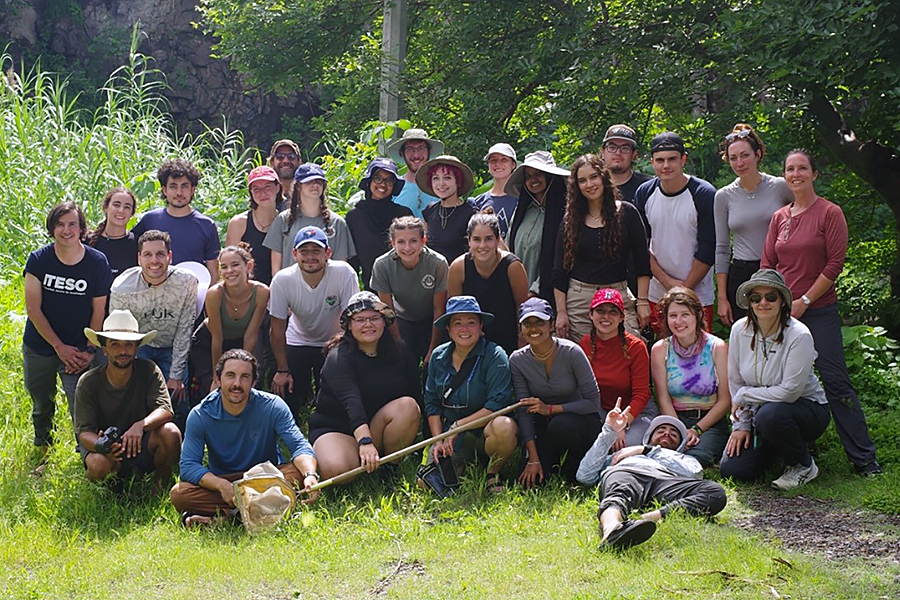 Students take samples from the Santiago River watershed in Mexico as part of a tri-national project on stream ecosystem assessment.
Students take samples from the Santiago River watershed in Mexico as part of a tri-national project on stream ecosystem assessment.
Freshwater ecology students from the University of Windsor have gone global.
A diverse delegation — field course participants from this term’s fourth-year course in stream ecology, Indigenous youth and staff from the National Urban Park Hub, and graduate students — travelled to Mexico in August to visit the Santiago River watershed and the campus of the Universidad Jesuita de Guadalajara.
The trip reflected an award under the 100K Strong in the Americas Alliance for Climate Action, part of a public-private sector collaboration among the U.S. State Department, embassies, Partners of the Americas, and foundations including Global Affairs Canada, who work together to stimulate new higher education partnerships across the Western Hemisphere.
For the first time, University of Windsor was a co-recipient of the award — faculty including UWindsor’s Catherine Febria, Sally Entrekin of with Virginia Tech University and ITESO, and David Rizo Decelis and Hugo de Alba Martínez of Universidad Jesuita de Guadalajara will collaborate to deliver shared course content and fieldwork experiences in parallel courses this term.
Over two weeks in August, students and staff from all three universities collaborated to assess stream health in Mexican freshwater ecosystems while also learning about local watershed issues and forming collaborations with American and Mexican peers. The group worked together to assess waterfall headwaters in the mountains; Mexico’s largest inland lake, Lago Chapala; and hot springs in the heart of La Primavera, Guadalajara’s urban park reserve.

Students and staff from the University of Windsor, Virginia Tech University, and the Universidad Jesuita de Guadalajara visited the Santiago River basin in western Mexico this past August as part of a teaching exchange and grant.
This semester, undergraduate classes will compare datasets collected from watersheds in all three countries. The teams will meet up again in December for a week-long visit to Windsor.
“UWindsor students and staff had the opportunity to learn first-hand about the importance of collaborations when studying freshwater ecosystem health, while also building their own networks,” said Dr. Febria. “More importantly, we didn’t just helicopter into the community to do extractive science. We look forward to reciprocating when we welcome the teams from Mexico and USA to Windsor later this term.”
UWindsor dean of science Claudio Verani hailed the collaborative approach to environmental research.
“This kind of teamwork — where reciprocal interest and respect are present — brings investigators working towards the same preservation goals and marks a new form of research based on acknowledging the differences and promoting the similarities that makes us human,” he said.
Febria said the course prepares students for a global perspective on ecological issues.
“Water connects us all and yet the ability to care for water is not the same across watersheds or countries,” she said. “The more we can offer opportunities for students and early career folks to work together, the better equipped they will be to collaborate, and problem solve in the future.”
